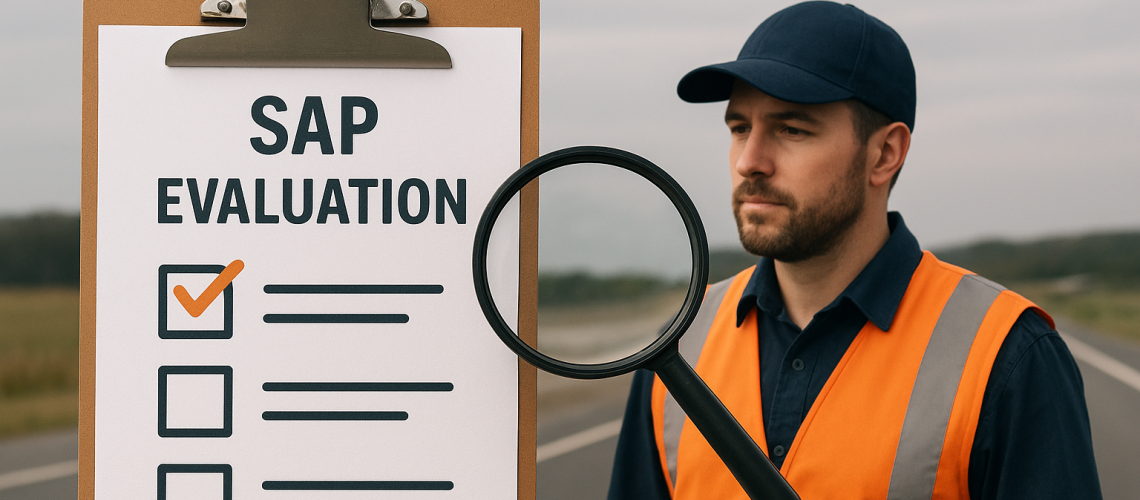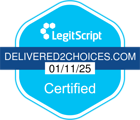Table of Contents
ToggleIntroduction
If you’re a CDL holder who has failed or refused a DOT drug or alcohol test, the Substance Abuse Professional (SAP) evaluation is the only way back to duty. Many drivers worry about how much it costs and how long it will take. In 2025, with FMCSA Clearinghouse rules stricter than ever, knowing the realistic expectations for cost and timeline can help you plan better and return to work faster.
What is an SAP Evaluation?
A SAP Evaluation is a federally required assessment under 49 CFR Part 40 that determines what steps a driver must take after a violation. The SAP guides you through:
- Initial evaluation
- Education or treatment plan
- Return-to-duty (RTD) test
- Follow-up testing (lasting up to 5 years)
No CDL holder can legally drive until they complete this process.
SAP Evaluation Costs in 2025
Initial Evaluation Fees
- Average: $400 – $600
- Telehealth SAPs may be slightly cheaper, but most fall within this range.
Follow-Up Evaluation Costs
- Range: A negotiated split cost of initial Evaluation
- There is one (1) follow-up after SAP requirements are completed.
Treatment & Education Program Fees
- Short education class: $50 – $200
- Outpatient / Inpatient treatment: $500 – $1,500+ depending on severity and provider. Insurance may cover the cost of this level of severity.
💡 Total Cost Expectation: Most drivers spend $500 – $1,200 for the complete SAP/RTD process (not including follow-up drug tests).
Timelines for the SAP Process in 2025
Initial Assessment
- Usually scheduled within 1–3 business days. Same day scheduling on some occasions.
Treatment/Education Completion
- Education only: 1-day to several weeks
- Treatment program: 4-weeks to several months, depending on violation severity.
Return-to-Duty (RTD) Test
- Can be scheduled immediately after SAP clearance.
Follow-Up Testing Plan
- Minimum 6 tests in the first 12 months.
- Can last up to 60 months (5 years).
Factors Affecting SAP Costs & Duration
- Type of violation: THC and alcohol positives often require longer treatment.
- Provider type: Some private SAPs charge premium rates.
- Location: Costs vary by city/state; telehealth can reduce expenses.
- Employer support: Company drivers may get assistance, while owner-operators pay fully out-of-pocket.
2025 Updates That Impact SAP Evaluation
- FMCSA Clearinghouse Phase II: Employers must check more frequently, reducing the chance of “slipping through.”
- Oral Fluid Testing Delay: Although approved, no certified labs exist yet (as of May 2025), so urine testing continues.
- Telehealth SAP Evaluations: More widely accepted, cutting travel time and expediting the process.
How to Save Time & Money on SAP Evaluations
- Choose a DOT-qualified SAP immediately to avoid delays.
- Follow the plan exactly—noncompliance adds time and cost.
- Ask for virtual/telehealth options where available.
- Complete education or treatment quickly—don’t drag it out.
Key Takeaways
- Expect to spend $500–$1,200 for a full SAP/RTD process.
- Timelines can range from a few days to several weeks depending on education vs. treatment.
- Compliance and fast action are the keys to minimizing costs and downtime.
FAQs
Q1. How much does the SAP evaluation cost in 2025?
Most CDL holders pay between $500 and $1,200 for the complete process, including evaluation, follow-ups, and education/treatment.
Q2. Can I choose a cheaper SAP provider?
Yes, you may shop around, but the SAP must be DOT-qualified. Cost alone shouldn’t be the only factor—SAP competence and rapport is critical also.
Q3. How long until I can get back to work?
Drivers can return to duty as soon as they complete their treatment/education plan and pass the RTD test—usually a few days to several weeks.
Q4. Is virtual SAP evaluation valid in 2025?
Yes, telehealth evaluations are accepted if the SAP is DOT-qualified and follows Part 40 guidelines.
Q5. Do I have to pay for follow-up drug tests?
Possibly, however, there is no DOT rule governing who pays for the follow-up tests. This is left to the employer and employee to negotiate.
Call-to-Action
Are you a CDL driver facing a DOT violation? Don’t wait—delays only increase your costs and downtime. Contact a DOT-qualified SAP today to start your evaluation and return-to-duty process as quickly as possible.





